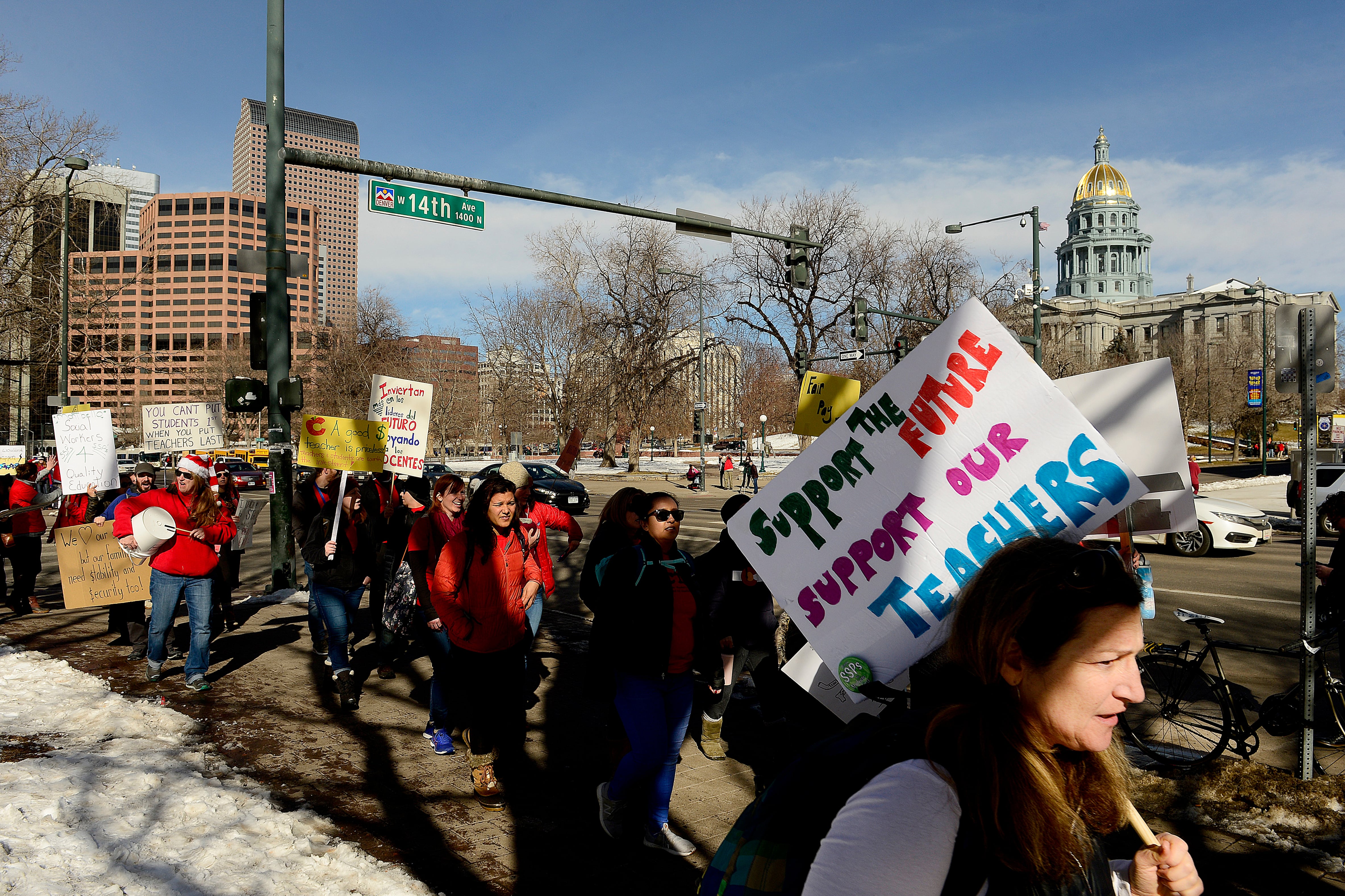Sign up for Chalkbeat Colorado’s free daily newsletter to get the latest reporting from us, plus curated news from other Colorado outlets, delivered to your inbox.
An arbitrator has sided with Denver Public Schools in a pay dispute between the school district and the teachers union over the size of teacher raises this school year, according to a letter from Superintendent Alex Marrero and a statement from the Denver Classroom Teachers Association.
The dispute centered on a provision in the teachers union contract that said if Colorado lawmakers boosted funding to DPS by reducing the so-called budget stabilization factor, Denver teachers could get bigger cost-of-living raises.
Although state lawmakers eliminated the budget stabilization factor altogether last year, ensuring the state will no longer withhold money from K-12 schools to pay for other priorities, DPS said its state funding increase wasn’t enough to cover the bigger raises this school year. The union disagreed, and the dispute eventually landed before an arbitrator.
The next step is for the Denver school board to vote on whether to accept the arbitrator’s decision. If they accept it, Denver teachers won’t get what the union argued its members should: a 5.2% cost-of-living raise in addition to the annual pay bumps many teachers received based on their years of experience and level of education.
Instead, DPS gave teachers raises totaling 5.2% this school year, which was inclusive of both a cost-of-living adjustment and step-and-lane increases based on their experience and education.
The district also promised union members a $1,000 one-time payment that it hasn’t yet paid. The arbitrator ordered DPS to do so within 90 days, according to a letter from Marrero to the school board Wednesday that Chalkbeat obtained in an open records request.
Marrero’s letter said the arbitrator’s decision was “not a surprise to us.” He lamented that “both the district and DCTA had [to] waste resources to reaffirm what we negotiated.”
A statement sent by a district spokesperson said “Denver Public Schools (DPS) has great respect and admiration for every member of the Denver Classroom Teachers Association (DCTA). We were pleased to learn that the arbitrator confirmed that we have followed the collective bargaining agreement (CBA) with DCTA that was agreed to in August of 2022.”
Union President Rob Gould characterized the arbitrator’s decision differently. In a statement, he said it “was made on a technicality in contract language — not on whether DPS could afford to pay its educators, despite their many excuses.”
Gould said that DPS “has the money.” He pointed to Marrero’s recent $17,000 bonus and a 5.2% cost-of-living adjustment that DPS gave to district administrators this year as proof. Gould also referenced a 2019 teachers union strike over pay and other issues.
“Six years ago this week, educators were on the picket line because DPS refused to invest in its educators and students,” Gould said. “Once again, DPS’s priorities are leaving students and educators to bear the consequences of their poor and petty decisions.”
The current three-year contract between the teachers union and the district is set to expire on Aug. 31. The two sides will begin negotiating a new contract Feb. 24, the union said.
Melanie Asmar is the bureau chief for Chalkbeat Colorado. Contact Melanie at masmar@chalkbeat.org.






